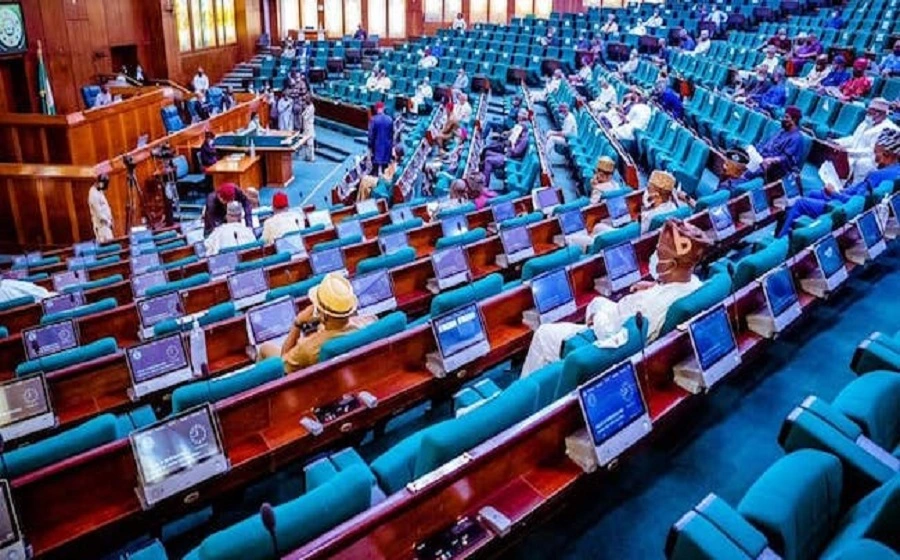Limits of corporate authority
In recent days, the National Assembly has summoned some of the country’s most influential private sector figures, including Dangote and BUA, among others, to address the rising prices of manufactured goods in the country. This concept of shifting responsibilities to the private sector and advocating less government intervention should be avoided. Since Friedman’s 1970 publication, […]

House of Reps
In recent days, the National Assembly has summoned some of the country’s most influential private sector figures, including Dangote and BUA, among others, to address the rising prices of manufactured goods in the country. This concept of shifting responsibilities to the private sector and advocating less government intervention should be avoided.
Since Friedman’s 1970 publication, the idea that business leaders from the private sector should not be responsible for public policies has been established. These are the responsibilities of the government authorities, and pushing them to be involved in these roles will involve bypassing the political processes.
A company executive of Dangote Cement or BUA Cement is an employee of their shareholders and is directly responsible to their employers. Their responsibility, as Friedman puts it, is to make as much money as possible within the confines of the law.
To put it bluntly, their primary objective is to make as much profit as possible for their owners. Of course, there are situations where employers may have different objectives. For example, they may establish a foundation for a philanthropic purpose, like a church, mosque, hospital, or school. In this case, the manager of such a foundation will have the rendering of certain services as their objective instead of money profits.
NAF invites foreign exhibitors to 60th anniversary
TETFund earmarks N1bn for hostels’ construction in 12 schools
Let’s not forget that company executives have a conscience—they are people like us, too. They assume responsibilities to their families, their clubs, their mosques or churches, their hometowns, and their country. They may feel compelled by these responsibilities to spend some money on well-intentioned causes, like feeding the poor. We can think of these responsibilities as social responsibilities.
When these executives have social responsibility, then they will have to act in some way that is not in the interest of their employers. For example, they will have to refrain from increasing the price of cement in order to contribute to the social objective of preventing inflation, even though a price increase would be in the best interests—making profits—of the Dangote or BUA cement companies. Or they may go against the expense of company objectives to employ workers using a quota system instead of competency so that they can contribute to the social objective of reducing poverty in the communities they operate.
It is of note that these corporate executives would have to spend someone else’s money for a general social interest. If they work towards social responsibility instead of profit-making, they will be reducing the returns of their shareholders, they will be spending shareholders’ money. If they work towards raising product or service prices, they will be spending the customers’ money. If they work towards lowering the wages of their employees, they will be spending their workers’ money. In effect, they are imposing taxes, on the one hand, and deciding how the tax proceeds shall be spent on the other.
This practice is not uncommon today. Whenever business leaders appear in the public for scrutiny, we hear them declare that their businesses are not obsessed with profit-making. They keep repeating that they have a social conscience and take seriously their responsibilities for providing employment, respecting the law, and all the relevant catchphrases that make the people nod their heads in agreement. They even sneak the issue of empathising with the public, being affected by the economic conditions and promising lower prices for products within a given timeframe. Those nodding in agreement forget that they are accepting that these business executives will be doing the work of our legislators, executives and judiciary.
On the contrary, without following any political process, these private sector managers will now decide who to tax, by how much and for what purpose, and they spend the proceeds—all under the guise of curbing inflation, improving efficiency, fighting poverty, etc. We have forgotten that for anyone to impose taxes and make expenditures to promote social welfare, a structure is required to assess the taxes and determine the objectives to be served through a political process.
Funny enough, the public hardly challenges the potential consequences. People need to consider how efficiently these company managers deliver their said responsibilities. For example, we are still waiting to see the price of cement go down to N3,500, as BUA Cement Company promised in October. On the one hand, these executives are at the mercy of their shareholders, customers, and employees. They are only experts in running their companies; they produce a product, sell it, and finance it. This does not make them experts on fiscal and monetary policies. On the other hand, they could be fired for spending shareholders’ money, their customers and employees could desert them, and labour union officials could try to fight against wage reductions, which can lead to strikes and other unfavourable situations.
Therefore, with the House of Representatives summoning manufacturers and business leaders over cement prices, we must be attentive to avoid pushing governmental roles to company executives. Business leaders should focus on profit generation and growing their businesses within legal constraints, while elected officials should take the responsibility of managing public policy and social welfare, maintaining a clear separation of responsibilities for economic and state integrity. Simple.
